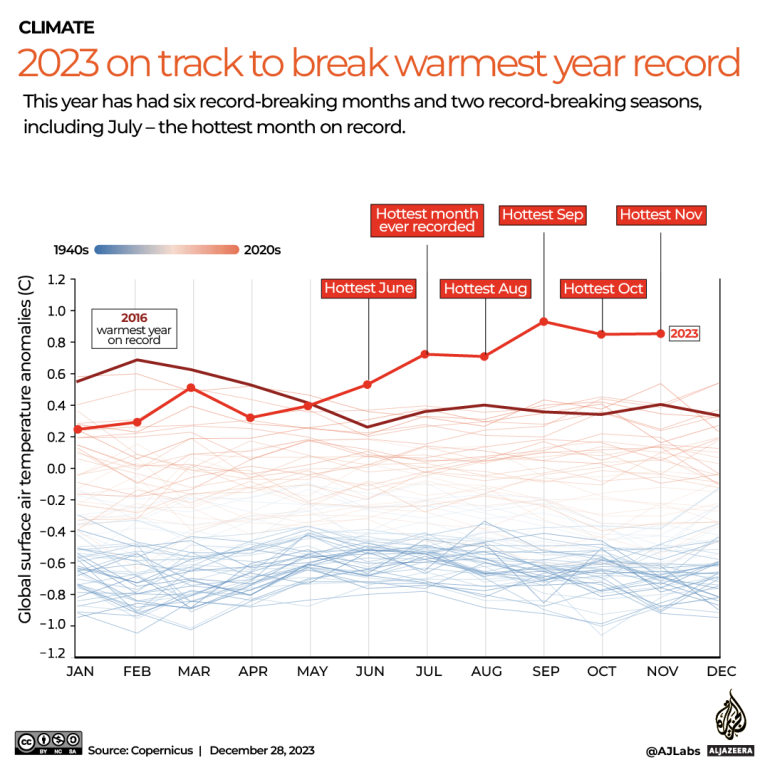What climate records were broken in 2023
Al Jazeera takes a look at the unparalleled climate events from the past year.
The year 2023 has been the hottest on record, according to scientists.
According to observers, sizzling heatwaves, devastating floods, and storms have all contributed to global weather records being smashed this year.
"[Year] 2023 has now had six record-breaking months and two record-breaking seasons,” Samantha Burgess, deputy director of Copernicus Climate Change Service (C3S), said in a statement this month.
The world has experienced the highest mean temperature on record for the first 11 months of the year, 1.46 degrees Celsius (2.63 degrees Fahrenheit) above the pre-industrial average.
From January to November, the 11-month average was 0.13C (0.234F) higher than 2016, which was previously the warmest calendar year on record.

In June, scientists announced the arrival of the El Nino climate pattern.
Emerging in the central and eastern Pacific near the equator, El Nino is responsible for the warming and cooling of large areas of the ocean, which significantly influences where and how much it rains and changes in global temperature.
The strong weather pattern, responsible for higher global temperatures, has contributed to the catastrophic extremes seen in 2023.
Here is a timeline of how the climate record-breaking unfolded:



Scientists say the record-breaking extremes of 2023 serve as a sobering warning of what is to come if society does not curtail its use of coal, oil and gas.
"As long as greenhouse gas concentrations keep rising, we can't expect different outcomes from those seen this year,” C3S director Carlo Buontempo said.
“The temperature will keep rising and so will the impacts of heatwaves and droughts. Reaching net zero as soon as possible is an effective way to manage our climate risks."
The warm temperatures experienced so far throughout the year show no signs of letting up.
The last month once again was the warmest November ever recorded. On November 17 and 18, the Earth’s global average surface temperature was more than 2C (3.6F) higher than pre-industrial levels — the first time scientists have ever recorded such a reading.
With El Nino set to reach its full strength in the Northern Hemisphere winter, more extreme weather events are likely to be unleashed around the world in 2024.